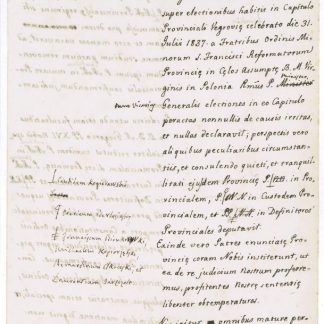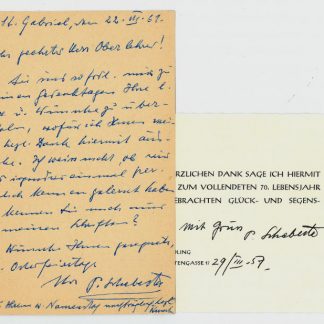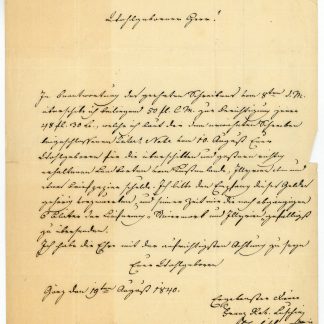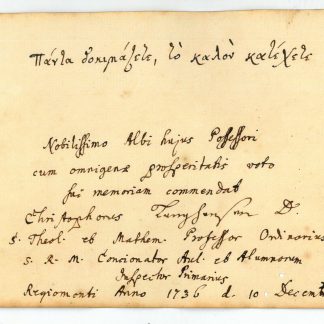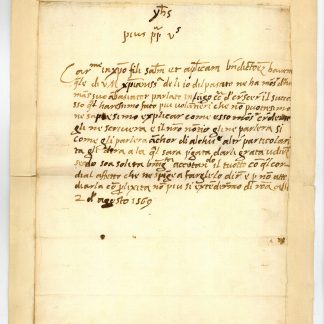A letter from Pope Pius V to Charles IX during the French Wars of Religion
Autograph letter signed ("Pius PP Vs").
Small folio. ½ p. on bifolium. With autograph address. Mounted in papered frame (357 x 246 mm). In Italian.
€ 45,000.00
Rare letter to King Charles IX of France, referring to a previous audience of Charles's ambassador to the Holy See, Charles d'Angennes de Rambouillet, archbishop of Mans. The topic of the long audience had been the "preservation" of unspecified help that the Pope "willingly brought to the King", most likely reinforcements to the Catholic army in the French Wars of Religion. Pius announces that d'Angennes will write the King in detail and that his nuncio in France will ask for an audience with Charles. The letter in full: "Carissimo in Christo fili salutem et Apostolicum benedictionem. Havemo quelle di Vostra Maestà Christianissima, de li 10 del pasato, ne ha Mons.r d'hu[?] Mans suo ambasiator parlato in lungo, circa di conservare il succorso, qual havessimo fato più voluntieri che non puotesimo ne sapesimo explicar, come esso Mons.r credemo gli ne scriverà e il nostro nontio gli ne parlera si come gli parlera anchor di alcune altre particolarità, a laqual sara pregata darli grata udienza secundo sua solita benignita, accetando il tutto con quel Cordial affetto che ne spinge a fargli lo dire, et per non attendiarla complexità non più si extenderemo".
The French Wars of Religion had flared up again in 1568 with the Third Civil War, which lasted until 1570. Just a few weeks before the audience of the ambassador with the Pope, Charles's Catholic army, supported by troops from Spain and the Papal State, were defeated in the Battle of La Roche-l'Abeille on 25 June 1569. On 3 October 1569, the Catholic forces won the Battle of Montcour but Charles, on the verge of bankruptcy, would still be forced to sign the Peace of Saint-Germain-en-Laye on 8 August 1570 that guaranteed specific rights and responsibilities to the French Huguenots. Two years later, Charles gained lasting notoriety for his ambiguous role in the St Bartholomew's Day massacre against the Huguenots that violently ended the fragile religious peace.
Traces of folds and seal. With added date "2 aoust 1569" in French to the address (twice). Some browning and minor stains. Several tears to the paper border.



